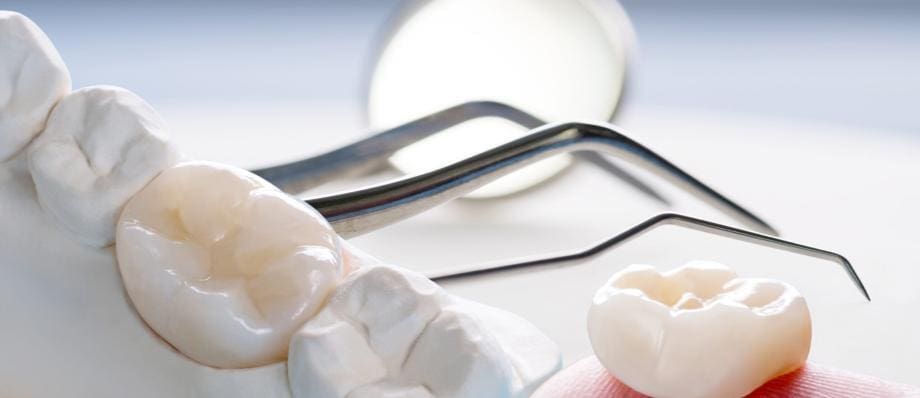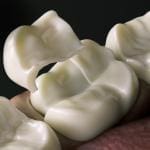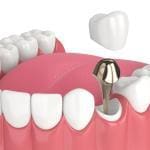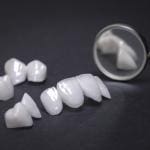A dental crown is a cap that is placed on top of a damaged or decayed tooth to restore its function and appearance. Crowns are available in various materials, including metal, porcelain, and ceramic. However, zirconia crown has gained popularity in recent years due to its durability and aesthetics.
Zirconia is a type of ceramic that has excellent strength and fracture resistance. It is often used in the medical field for implants and prosthetics, and it has been used in dentistry since the 1990s. Zirconia crowns have become a popular option for patients who want a natural-looking, strong, and long-lasting restoration.
What is a Zirconia Crown?
A zirconia crown is a type of dental crown that is made entirely of zirconia. Zirconia is a white, opaque material that is biocompatible, meaning that it is not harmful to living tissue. It is also extremely strong, and it has a natural translucency that makes it look like a real tooth.
Zirconia crowns are made using computer-aided design and computer-aided manufacturing (CAD/CAM) technology. A digital impression of the patient’s tooth is taken, and the dental crown is designed using specialized software. The design is then sent to a milling machine, which carves the crown out of a block of zirconia.
Once the crown is milled, it is sintered, which is a process that involves heating the crown at a high temperature to make it even stronger. The crown is then polished and glazed to give it a natural-looking finish. The entire process can be completed in a single dental visit, which is why zirconia crowns are also known as same-day crowns.
Advantages of Zirconia Crowns
Zirconia crowns offer several advantages over other types of dental crowns. Here are some of the most significant benefits of zirconia crowns:
- Strength and Durability
- Aesthetics
- Biocompatibility
- Convenience
- Longevity
Strength and Durability
Zirconia is one of the strongest materials used in dentistry. It has a flexural strength that is almost double that of other types of dental ceramics, such as lithium disilicate and feldspathic porcelain. This means that zirconia crowns can withstand the forces of biting and chewing without cracking or breaking.
Aesthetics
Zirconia has a natural translucency that allows it to mimic the look of a real tooth. It also has a white color that can be customized to match the color of the patient’s natural teeth. Zirconia crowns are an excellent option for patients who want a restoration that looks and feels like a real tooth.
Biocompatibility
Zirconia is a biocompatible material, which means that it is not harmful to living tissue. It is also hypoallergenic, which makes it an ideal option for patients with allergies to other dental materials.
Convenience
Zirconia crowns can be made in a single dental visit, which means that patients do not need to wear a temporary crown or return for a second appointment. The CAD/CAM technology used to make zirconia crowns also ensures a precise fit and a high level of accuracy.
Longevity
Zirconia crowns have a long lifespan and can last for up to 15 years or more with proper care. They are resistant to wear and tear and are less likely to chip or break compared to other types of dental crowns.
Disadvantages of Zirconia Crowns
While zirconia crowns offer many advantages, they also have some disadvantages that patients should be aware of. Here are some of the most common drawbacks of zirconia crowns:
- Cost
- Difficulty in Adjustments
- Increased wear on opposing teeth
- Aesthetics may not match natural teeth
- Removal of more tooth structure
Cost
Zirconia crowns are generally more expensive than other types of dental crowns. This is because zirconia is a high-quality material that requires specialized equipment and expertise to manufacture. Patients should be prepared to pay a premium price for the durability and aesthetics of zirconia crowns.
Difficulty in Adjustments
Zirconia crowns are more challenging to adjust than other types of dental crowns. Once the crown is cemented in place, it cannot be easily modified or reshaped. This can be problematic if the crown does not fit correctly or if the patient’s bite needs to be adjusted.
Increased wear on opposing teeth
Zirconia is a hard material that can cause increased wear on the opposing teeth when compared to natural teeth or other dental materials like porcelain. This can lead to premature wear and tear on the opposing teeth, which may require additional dental work in the future.
Aesthetics may not match natural teeth
While zirconia crowns offer excellent aesthetics, there is still a possibility that the color of the crown may not match perfectly with the patient’s natural teeth. This can be especially noticeable if the patient has several zirconia crowns placed on their front teeth.
Removal of more tooth structure
To accommodate the thickness of the zirconia material, more tooth structure must be removed than for other types of dental crowns. This can be a concern for patients who want to preserve as much of their natural tooth as possible.
Who is a Good Candidate for a Zirconia Crown?
Zirconia crowns are an excellent option for patients who need a strong and durable restoration that looks like a real tooth. Patients who grind their teeth or have a history of breaking dental restorations may also benefit from zirconia crowns.
However, not all patients are good candidates for zirconia crowns. Patients who have significant tooth decay, gum disease, or a history of bruxism (grinding or clenching their teeth) may not be suitable for zirconia crowns. Additionally, patients who have a high bite force or who frequently chew on hard objects may be better served by other types of dental crowns.
It is essential to discuss your dental health history and your expectations with your dentist to determine if a zirconia crown is the right option for you.
Caring for Your Zirconia Crown
Proper care is essential to ensure the longevity of your zirconia crown. Here are some tips to help you care for your crown:
- Brush and floss regularly
- Avoid hard and sticky foods
- Wear a mouthguard if you grind your teeth
- Visit your dentist regularly
Brush and floss regularly
Good oral hygiene is crucial to maintaining the health of your teeth and gums. Brush your teeth twice a day with a soft-bristled brush and fluoride toothpaste. Floss at least once a day to remove plaque and food particles from between your teeth.
Avoid hard and sticky foods
Zirconia crowns are strong, but they can still be damaged by hard or sticky foods. Avoid biting down on hard objects like ice, hard candy, or popcorn kernels. Also, be cautious when eating sticky foods like caramel, taffy, or gum.
Wear a mouthguard if you grind your teeth
Grinding your teeth can cause damage to your zirconia crown and your natural teeth. If you grind your teeth at night, ask your dentist about wearing a mouthguard to protect your teeth while you sleep.
Visit your dentist regularly
Regular dental check-ups and cleanings are crucial to maintaining the health of your zirconia crown and your natural teeth. Your dentist can identify and treat any potential issues early on, which can help prevent the need for more extensive and costly dental work in the future.
Conclusion
Zirconia crowns are a durable and aesthetically pleasing option for patients who need a dental crown. They offer many benefits, including high strength and longevity, biocompatibility, and excellent aesthetics. However, they do have some drawbacks, including higher cost, difficulty in adjustments, increased wear on opposing teeth, and the need to remove more tooth structure.
Patients who grind their teeth, have a history of breaking dental restorations, or need a strong and durable restoration that looks like a real tooth may benefit from zirconia crowns. However, not all patients are good candidates for zirconia crowns. It is important to discuss your dental health history and your expectations with your dentist to determine if a zirconia crown is the right option for you.
Proper care is essential to ensure the longevity of your zirconia crown. Brush and floss regularly, avoid hard and sticky foods, wear a mouthguard if you grind your teeth, and visit your dentist regularly.
Overall, zirconia crowns offer an excellent option for patients who need a strong and durable dental crown that looks like a natural tooth. With proper care, they can last for many years, providing patients with a long-lasting and aesthetically pleasing solution to their dental needs.





